Olija is a wild island adventure about a castaway armed with a magic harpoon
And only a French musician living in Japan could have made it
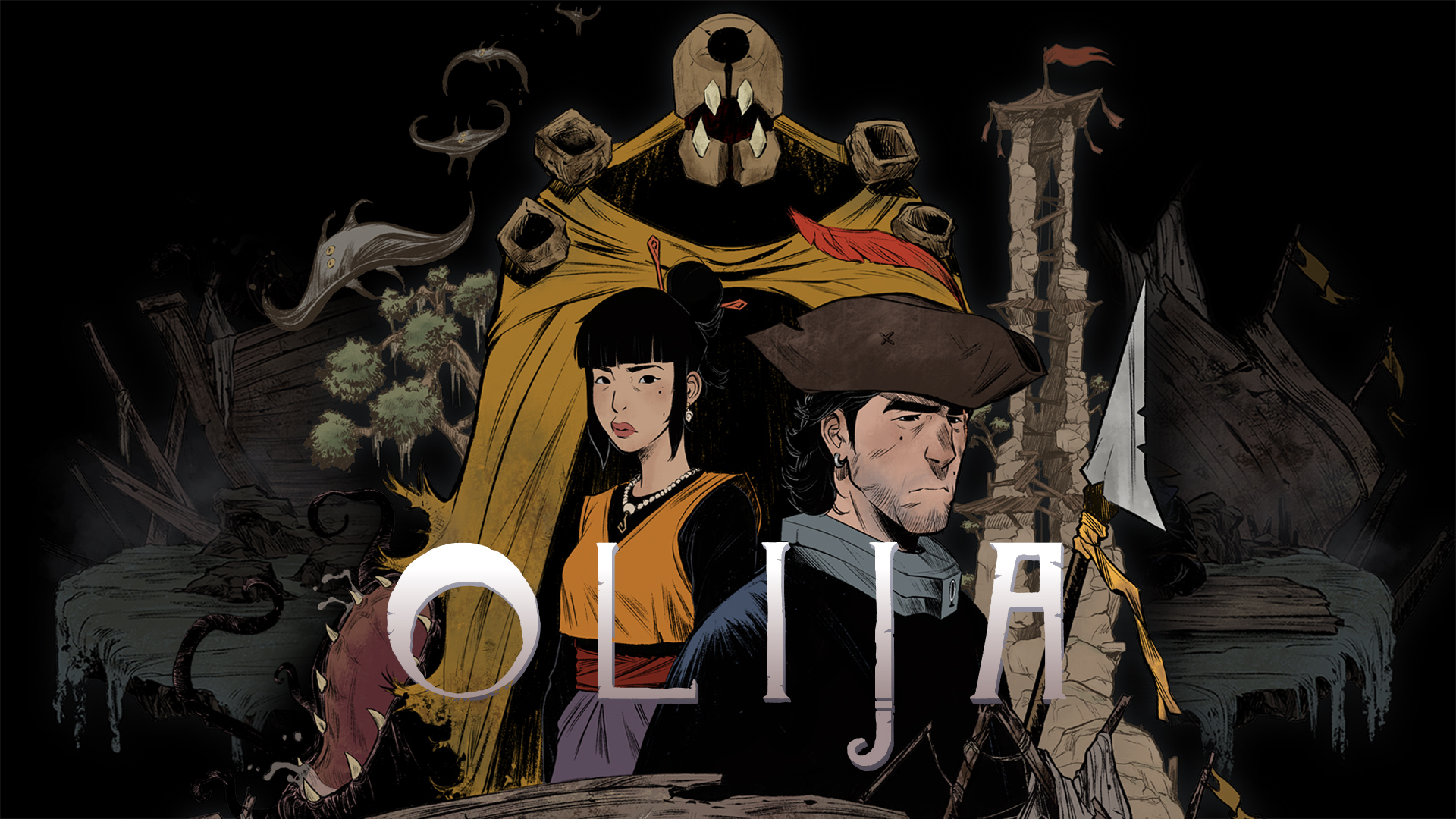
Solo developer Thomas Olsson has one of the most interesting stories I've come across in this industry, and his new game Olija (pronounced oh-lee-yuh) is a fast and exciting caricature of his experiences and fascinations. It's an island adventure that was first revealed at Devolver Digital's recent not-E3 showcase, and as its free Steam demo demonstrates, it's shaping up to be one of the most exciting 2D action games since Katana Zero.
Throw me a spear
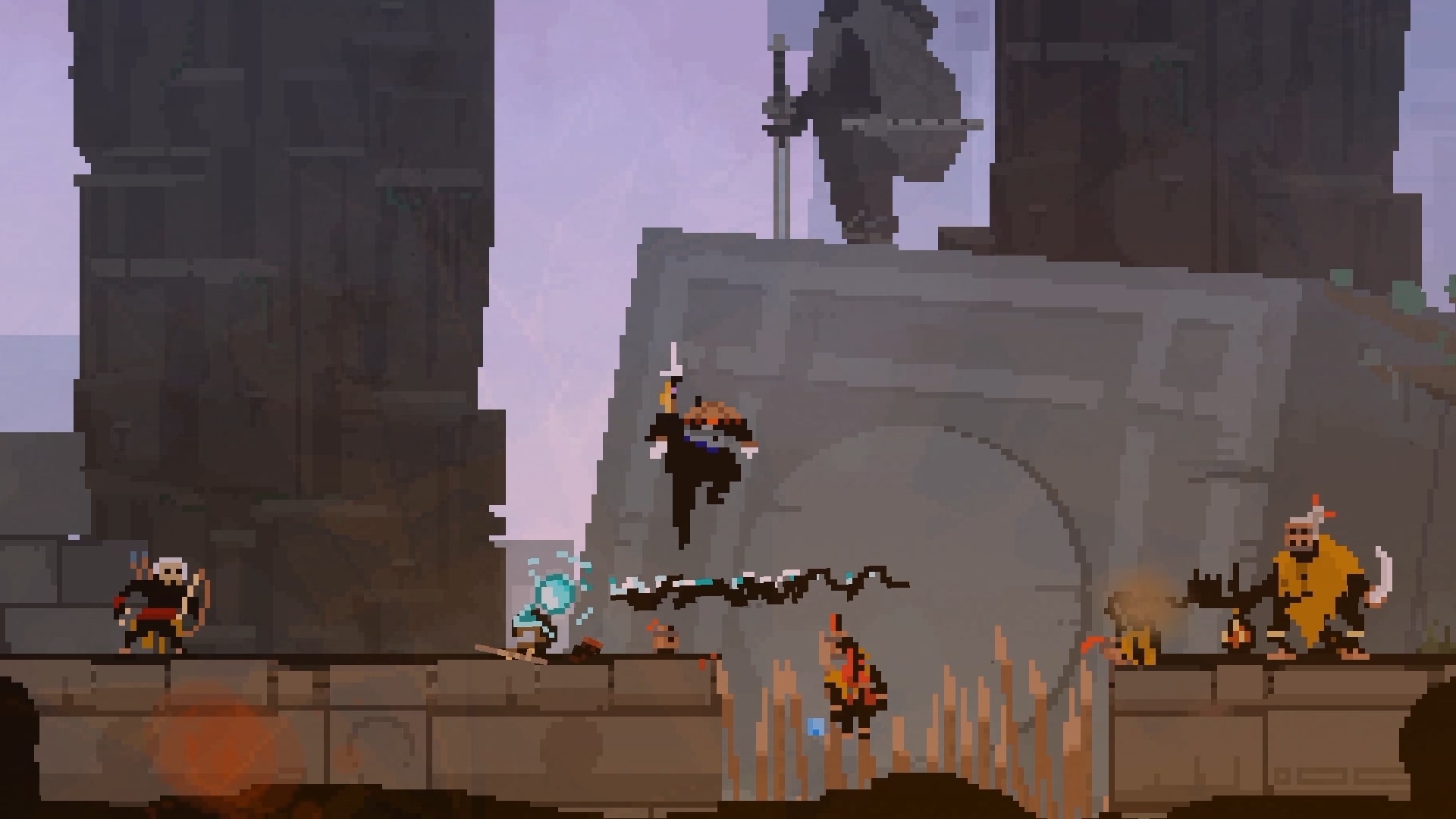
The hook for Olija is right up front: you've got a magic harpoon. You can smack dudes around with it, but also throw and teleport to it. The harpoon can be embedded in enemies as well as fixed environmental anchors before your teleport, and this turns Olija into both a lightning-fast action game and a puzzle-platformer. On top of building up three-hit combos to fuel special attacks, you can throw and teleport to your harpoon at any time to chase or escape enemies, or to amp up your next special attack even further. Add in four alternate weapons which you can swap to at any time – including a crossbow, a nimble rapier, and a shotgun-like blunderbuss – and you've got a remarkably frenetic 2D brawler.
"At first, it was just gonna be a secondary item, but I had too much fun with it," Olsson says of the harpoon. "It was nice to make. It was very different from what I wanted to make at first. So I was trying to figure out how to make the most of the harpoon. To have the player think about spaces where they couldn't fit if they didn't have the harpoon. I thought back to Half-Life, because I'm a huge fan of that game, and wanted to have players twist their mind a bit. I'd try to decide whether an area would be better for combat, made to be very simplistic so enemies can jump around and you can use your space to jump around and dance with them a bit, while other areas were purely narrative. It really depends."
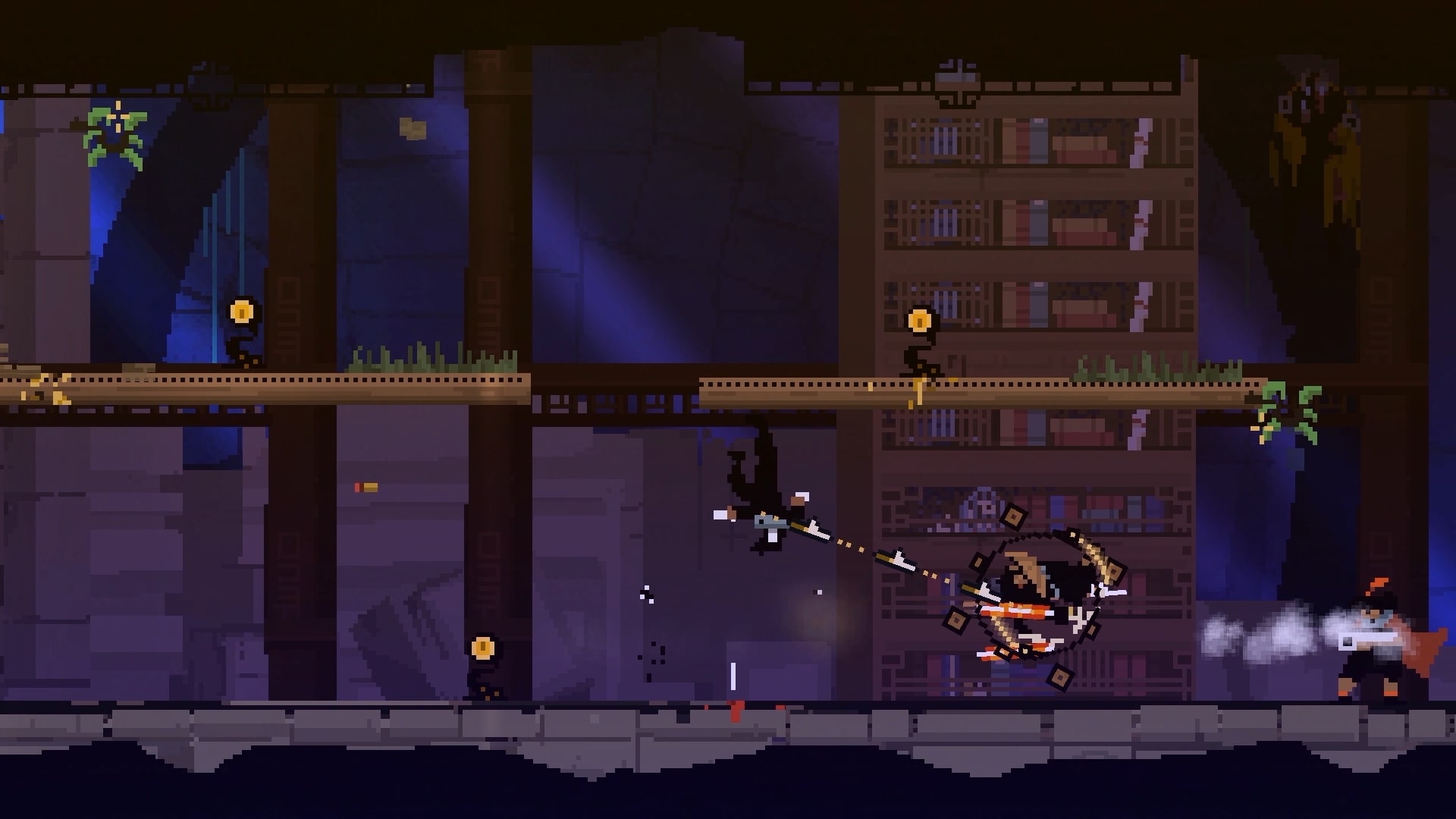
Olija reminds me of Dandara in that it was built around an unconventional means of traversal. The harpoon shapes everything in Olija, from level design to enemy placement and AI. The demo boss, for instance, punishes you for using the normal dodge too much. This forces you to use the harpoon teleport to escape certain attacks, and this creates a window to harpoon the boss itself, letting you get more hits in mid-air. The same is also true of minor enemies, many of which were explicitly designed to make you uncomfortable.
"There's a guy who casts spells who was designed to force you to use the harpoon," Olsson says. "He teleports constantly and you have to chase him. So you use the teleport to find your way to him through a crowd of enemies. There are also some weirder enemies that are more like creatures. Less organized, let's say. It is a fantasy. Most of the creatures or beings you encounter are not just humans."
"Fantasy" is the simplest possible way to describe Olija. It's about Faraday, an explorer who finds himself stuck on the island of Terraphage after a giant whale wrecks his ship during a hasty search for the aforementioned harpoon. Don't let the Moby Dick vibes fool you; Olija is steeped in Asian fantasy as well as sailors' legends. It also mirrors Olsson's experiences – as a French musician who became a full-time game developer after moving to Japan to be with his wife.
Not quite shipwrecked
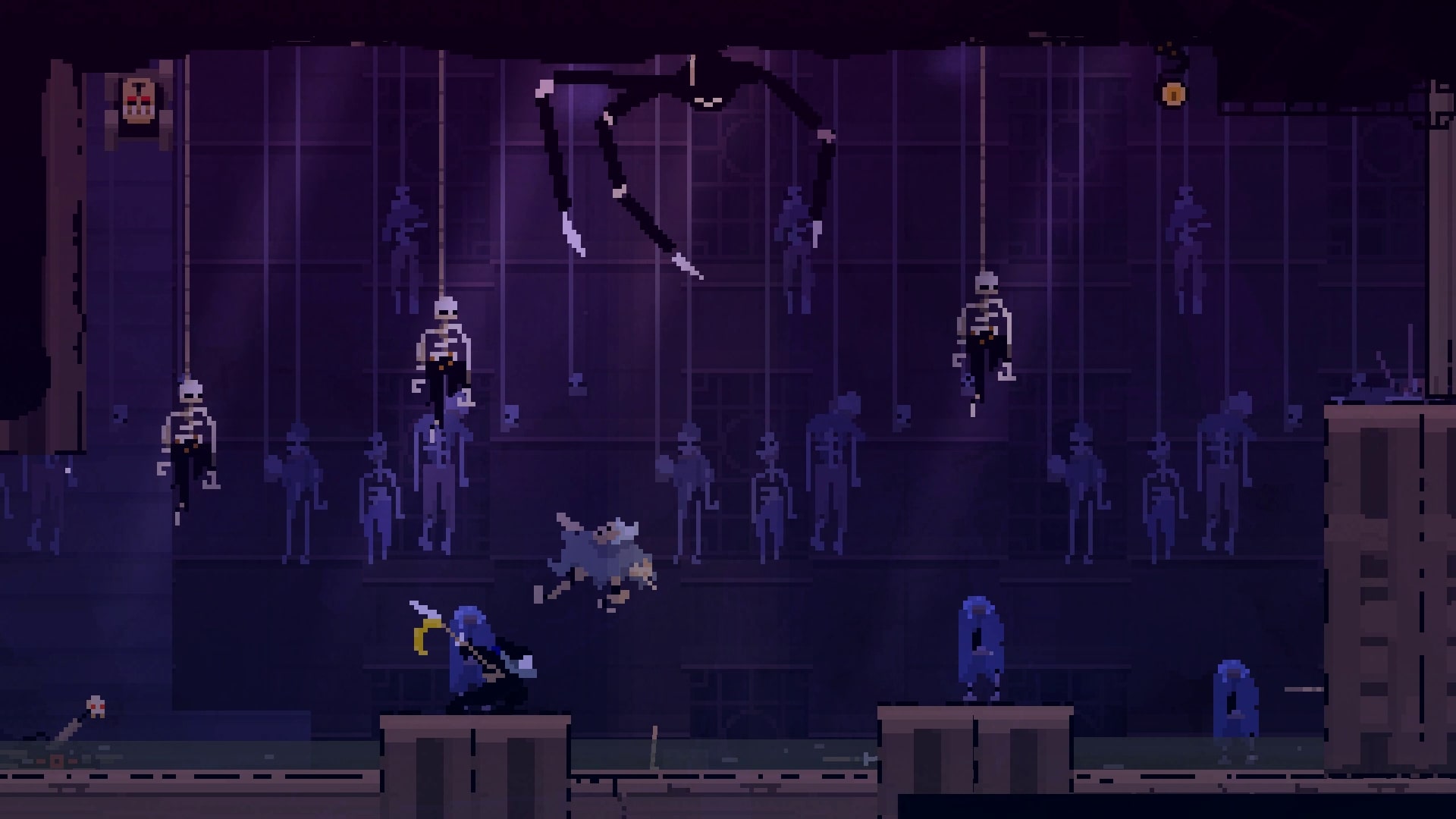
Olija is a solo passion project for Olsson, but he is a member of Skeleton Crew, a Japanese studio that acts as sort of an umbrella group for creators. They share opinions and resources, but many of the outfit focus on solo projects, while others are working together to prep as-yet-unannounced games. Olsson joined the studio around four years ago, about a year after he moved to Japan, when he was working on the prototype for his first game, a 2D brawler called BackSlash. He's been working on Olija for a little over two years – it'll be closer to three by the time it launches on PC and Switch later this year – and It's clear that his time in Japan was a major influence.
Sign up to the GamesRadar+ Newsletter
Weekly digests, tales from the communities you love, and more
"It's an original story, but it's inspired by a bunch of things I've seen or heard," he tells me. "With the ocean theme in general, Another World is a big inspiration, and then things like Pirates of the Caribbean and Moby Dick. I really like these stories of being lost in a very different foreign country where you don't really know what's happening and why you're here, how you're ever gonna get out of here. And that can come from my experiences as a foreigner in Japan. The rest is kind of freestyle, I really went with my instincts. I don't consider myself a writer; I think it's a very random plot. I just went with the flow."
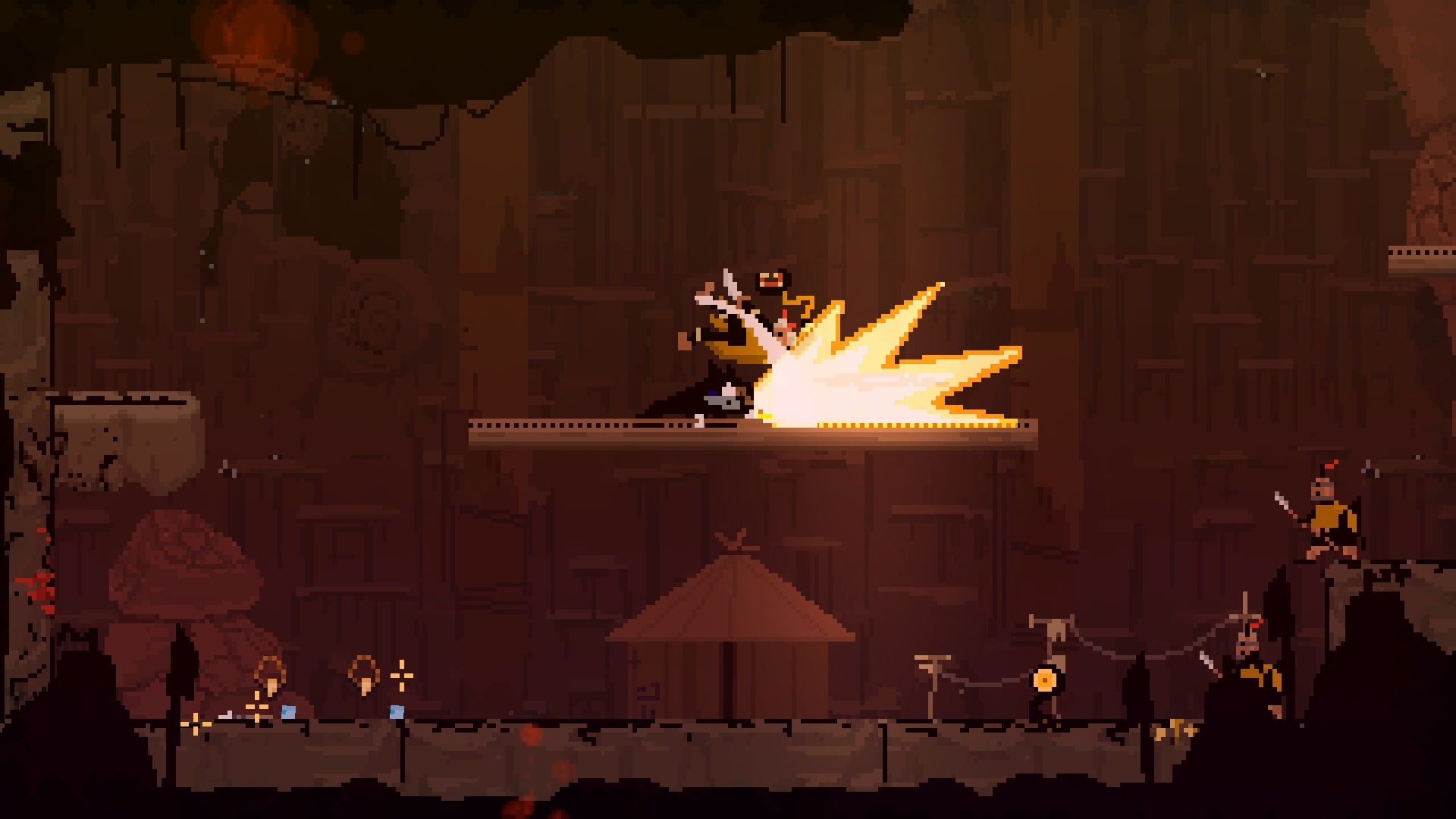
Olija is named after the woman you meet at the end of the game's demo. Olija herself becomes an ally to Faraday, helping him in his quest so that he helps her navigate the island. There are huge barriers between the two of them, but they wind up bound together anyway. This is another fascinating extension of Olsson's time in Japan.
"I think my inspiration there was friends in Japan that I had, when I couldn't speak Japanese," he says. "You bond with people but you can't really understand each other, so there's lots of things you don't know about them and that they don't know about you. But somehow you feel there's a connection somewhere."
Olsson was raised in France and grew up surrounded by musicians, but after meeting his wife in Paris, he followed her back to Japan, partly to live out long-held dreams of travelling. "I had a basic attraction for Japanese culture, but I was just doing games in my free time back then," he says. "I really didn't think it would become my job." Now he's playing the shakuhachi (a kind of Japanese flute) for the soundtrack to his second game while his wife plays the shamisen. It's no exaggeration to say that, in addition to a kick-ass action game based on a magic harpoon, Olija is also the culmination of Olsson's life. After speaking with him, I can't wait to see where it goes next.

Austin has been a game journalist for 12 years, having freelanced for the likes of PC Gamer, Eurogamer, IGN, Sports Illustrated, and more while finishing his journalism degree. He's been with GamesRadar+ since 2019. They've yet to realize his position is a cover for his career-spanning Destiny column, and he's kept the ruse going with a lot of news and the occasional feature, all while playing as many roguelikes as possible.


